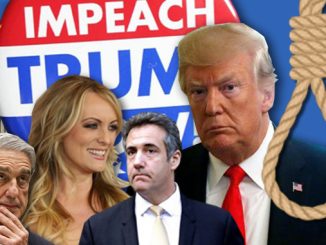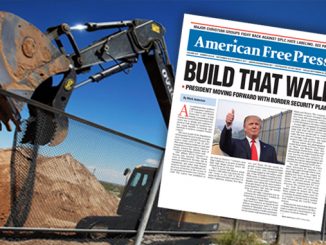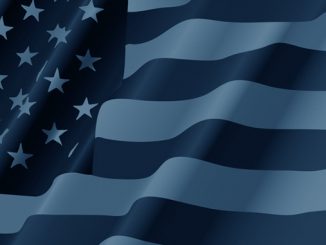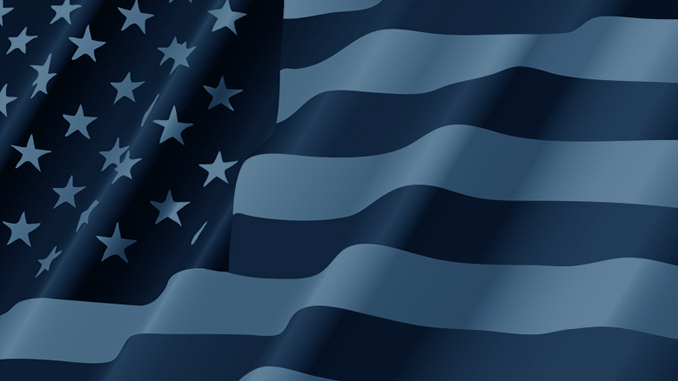
President has done more than many previous recipients who have received a Nobel.
By Mark Anderson
Norwegian Parliament member Christian Tybring-Gjedde announced on Sept. 9 that he has nominated President Donald Trump for the 2021 Nobel Peace Prize, for the president’s brokering of an Israel-United Arab Emirates (UAE) peace agreement. A week later, on Sept. 11, Swedish Parliament member Magnus Jacobsson announced he has nominated President Trump for the prize, for his role in a Kosovo, Serbia economic-normalization.
Tybring-Gjedde, in his nomination letter to the Nobel Committee, said the Trump administration has played a key role in the establishment of relations between Israel and the UAE. “As it is expected other Middle Eastern countries will follow in the footsteps of the UAE, this agreement could be a game-changer that will turn the Middle East into a region of cooperation and prosperity,” he wrote.
Jacobsson tweeted that he nominated the governments of the U.S., Kosovo and Serbia “for their joint work for peace and economic development, through the cooperation agreement signed in the White House. Trade and communications are important building blocks for peace.”
The Atlantic staff writer Graeme Wood went medieval on the president and on the peace prize itself, sniping that, in his view, President Trump is little more than a con man and possible “rapist” whose peace deals are all form and no substance. Adding some slash-and-burn to his tantrum, Wood insinuated that if President Trump, of all people, could be a Nobel Peace Prize nominee, then perhaps the peace prize itself should be scrapped.
“Giving the peace prize to no one at all is a tradition the Nobel Committee should revive, perhaps on a permanent basis,” Wood sarcastically fumed in his column. “The record of achievement of the peace laureates is so spotty, and the rationales for their awards so eclectic, that the committee should take a long break to consider whether peace is a category coherent enough to be worth recognizing. Peace had its chance and blew it. The Trump nomination . . . helps show why.”
“By now,” Wood added, “the contradictions of the peace prize should be apparent. Is it given for peace, or for rumors of peace? Do you deserve a prize for maintaining despots, as long as the despots are part of a stable network? . . . What if you do all the right things, but you are a boor or an alleged rapist?”
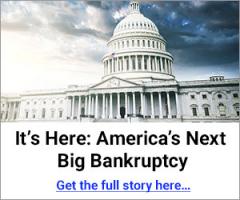 It’s true that the prize has historically been awarded to some surprising recipients. One wonders, for instance, how Bilderberg veteran and ultra-internationalist subversive Henry Kissinger garnered the Nobel Peace Prize in 1973, given his apparent hand in starting or sustaining deadly conflicts from Vietnam to the Middle East. And the equally improbable 2009 Peace Prize recipient, President Barack Obama—thought to have been a protégé of Kissinger’s in terms of foreign policy tutelage—refused to even meet with North Korean “strongman” Kim Jong Il, expanded America’s drone program, and even knowingly had an American citizen killed in a drone strike amid the “war on terror.”
It’s true that the prize has historically been awarded to some surprising recipients. One wonders, for instance, how Bilderberg veteran and ultra-internationalist subversive Henry Kissinger garnered the Nobel Peace Prize in 1973, given his apparent hand in starting or sustaining deadly conflicts from Vietnam to the Middle East. And the equally improbable 2009 Peace Prize recipient, President Barack Obama—thought to have been a protégé of Kissinger’s in terms of foreign policy tutelage—refused to even meet with North Korean “strongman” Kim Jong Il, expanded America’s drone program, and even knowingly had an American citizen killed in a drone strike amid the “war on terror.”
Subjective though the Nobel Peace Prize’s criteria may seem, things have taken an interesting turn now that America is on a more populist trajectory.
While the Nobel committee that chooses peace prize recipients may at times use rather loose criteria, President Trump is in the process of reaching historic agreements that, before he became president, would have been considered highly unlikely. It’s no small matter to get the Israelis to the bargaining table for anything, yet the president not only is putting pen to parchment on the Israel-UAE deal, “the case for a Trump prize was bolstered . . . by the announcement of a U.S. brokered deal between Bahrain and Israel to normalize relations,” Fox News noted, which fits the Norwegian lawmaker’s prediction.
What no one’s talking about is that if a string of Middle East peace pacts is in the offing, that could very well include the long hoped-for pact between Israel and the Palestinians—all of which could require Israel to define its borders, putting a damper on its long-term, aggressive strategic ambition to extend its domain from the Nile River to the Euphrates River.
This is not the first time President Trump has been nominated. Tybring-Gjedde and Per-Willy Amundsen, lawmakers with the Norwegian populist Progress Party nominated the president for the prize after his 2018 Singapore summit with Korean dictator Kim Jong Un, saying President Trump “had taken a huge and important step in the direction of the disarmament, peace and reconciliation between North and South Korea.” Although President Trump did not win the prize that year, the nomination was also backed by a group of U.S. lawmakers.
Both the UAE-Israel and Bahrain-Israel deals, referred to as the Abraham Accords, were signed at a White House ceremony on Sept. 15, marking “the first time Arab nations have established relations with Israel since Egypt in 1979 and Jordan in 1994,” notes international news site “France24.”
The Kosovo-Serbian Pact, signed at the White House on Sept. 4, goes beyond normalizing economic relations between the two former adversaries and includes Kosovo recognizing Israel, along with Serbia agreeing to move its embassy from Tel Aviv to Jerusalem.
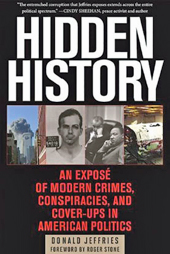
TRUMP’S BROAD VIEW
Trump has resisted allowing the big media and his most ardent Democrat opponents—who insist that Russian leader Vladimir Putin is so ruthless that Trump shouldn’t even bother negotiating with him—to nudge the U.S. into a military confrontation with Russia.
President Trump has used recent campaign stops to voice his desire for peace and what appears to be the adoption of a far less interventionist foreign and military policy. Tybring-Gjedde also praised President Trump for reducing U.S. troop numbers in the Middle East, and the president said at a Sept. 10 Michigan rally: “We have the most powerful military in the world. When I took it over, it was depleted. It was in trouble and was exhausted from these ridiculous, endless wars that last 19 and 20 years, and you know, those soldiers are starting to come home.”
For decades the entrenched neoconservative faction in the U.S. has been abusing U.S. military forces to carry out regime-change and nation-building, which fosters those 20-year occupations that have cost taxpayers hundreds of billions of dollars and untold blood and misery on all sides of the conflict. Thus, President Trump, who also mentioned that Iraq’s leader met with him in the White House about two weeks before the rally, is taking things to a whole new level—whether you like the Nobel Prize culture or not.
Mark Anderson is AFP’s roving editor. Email him at [email protected].



